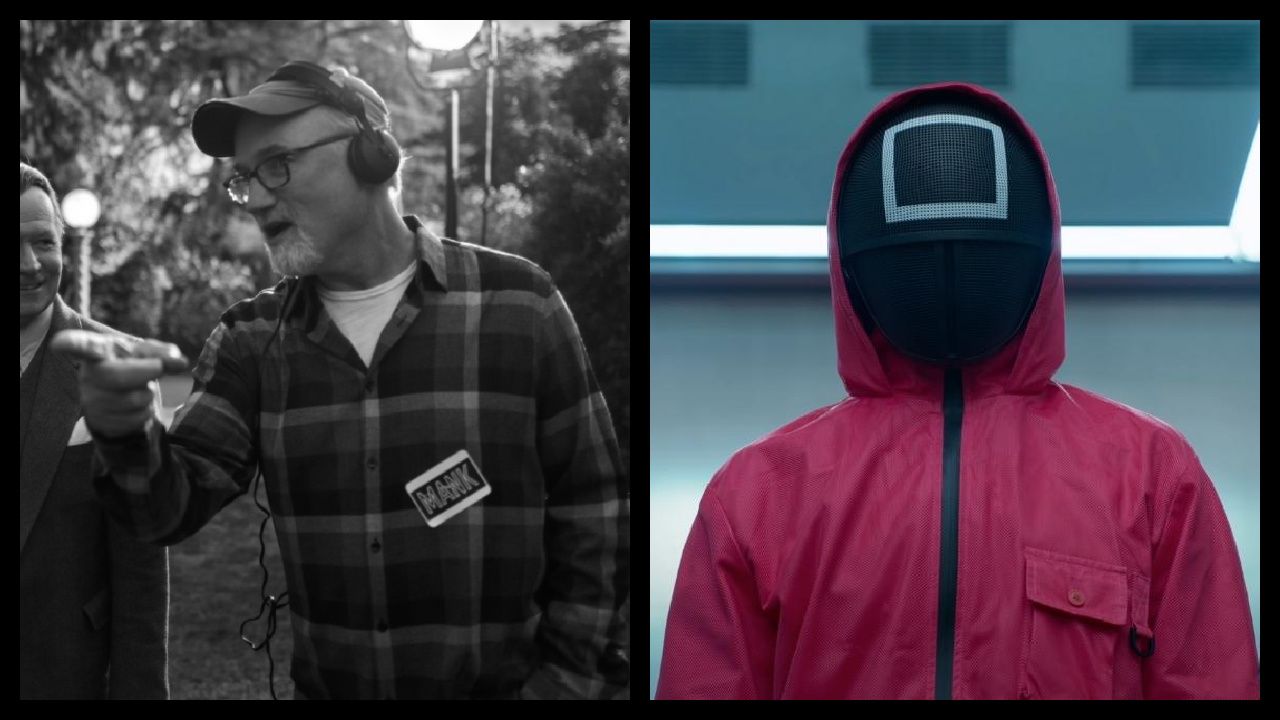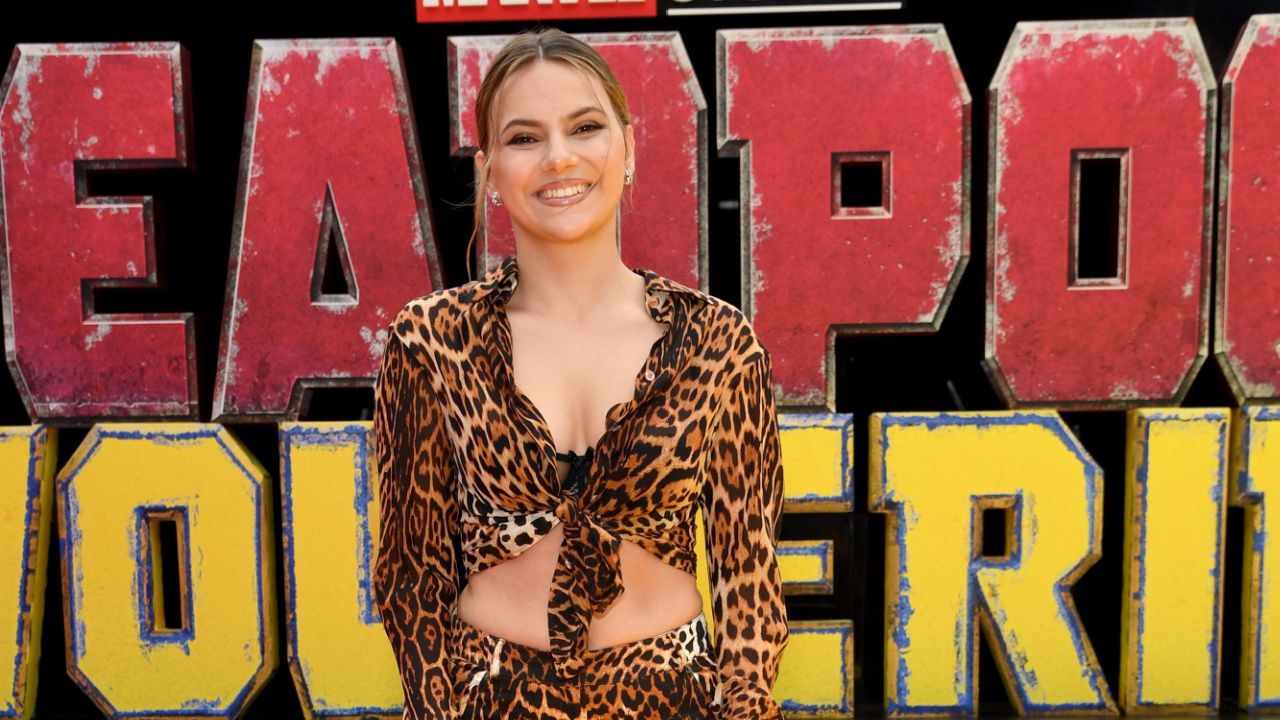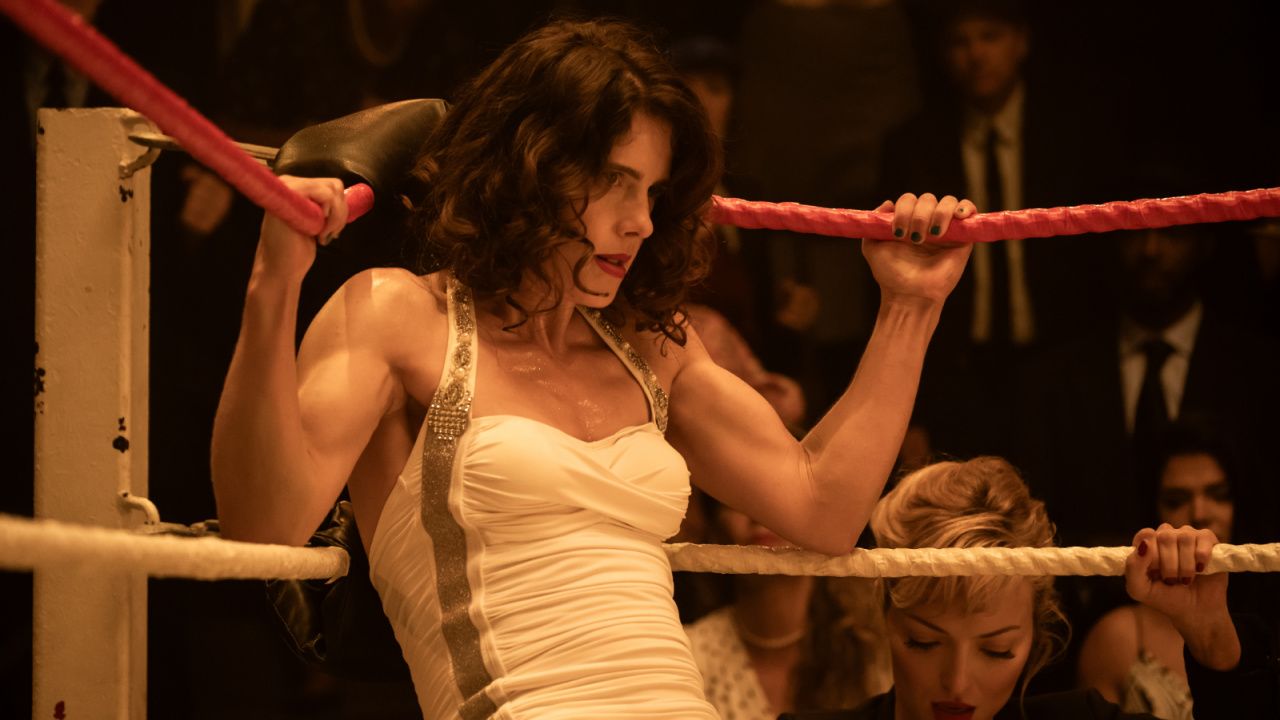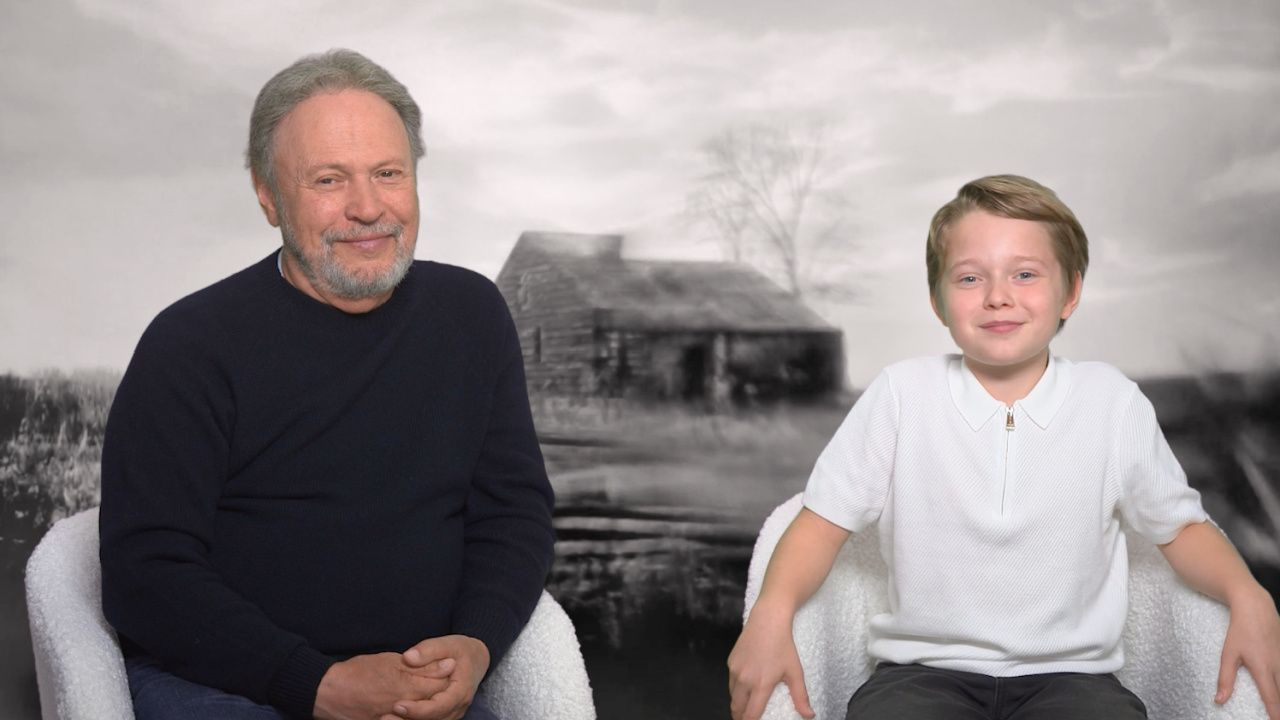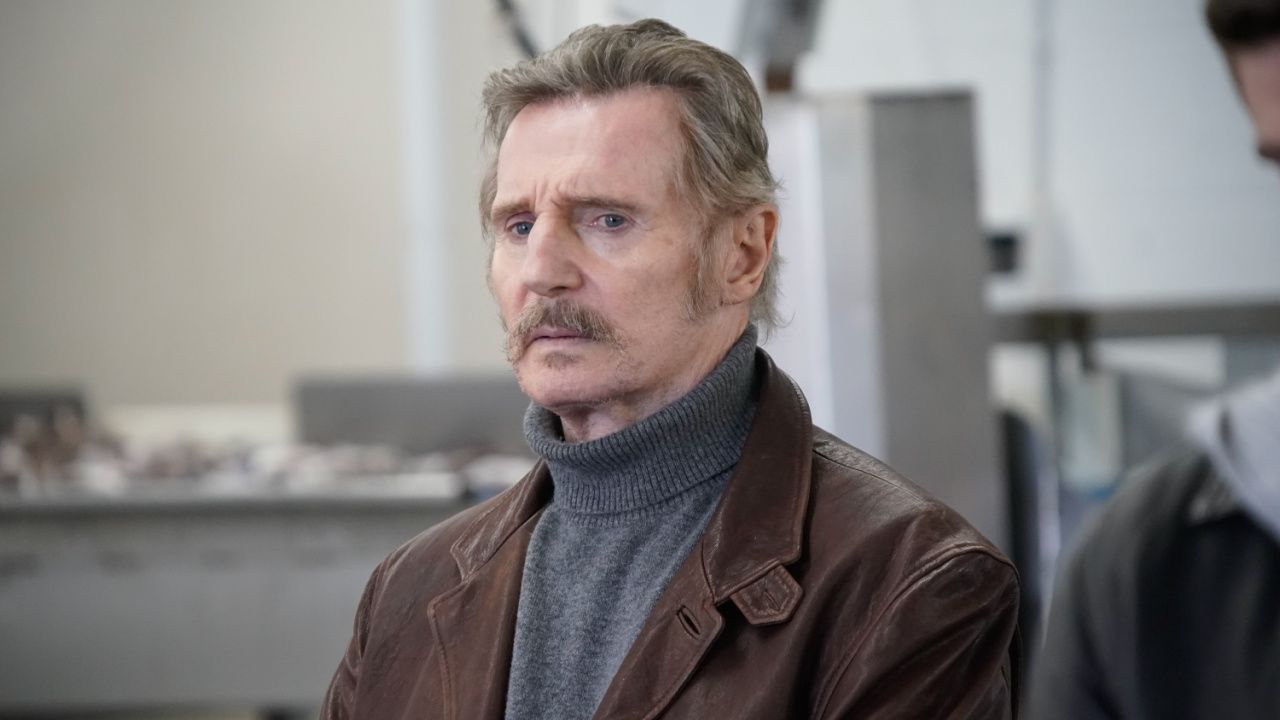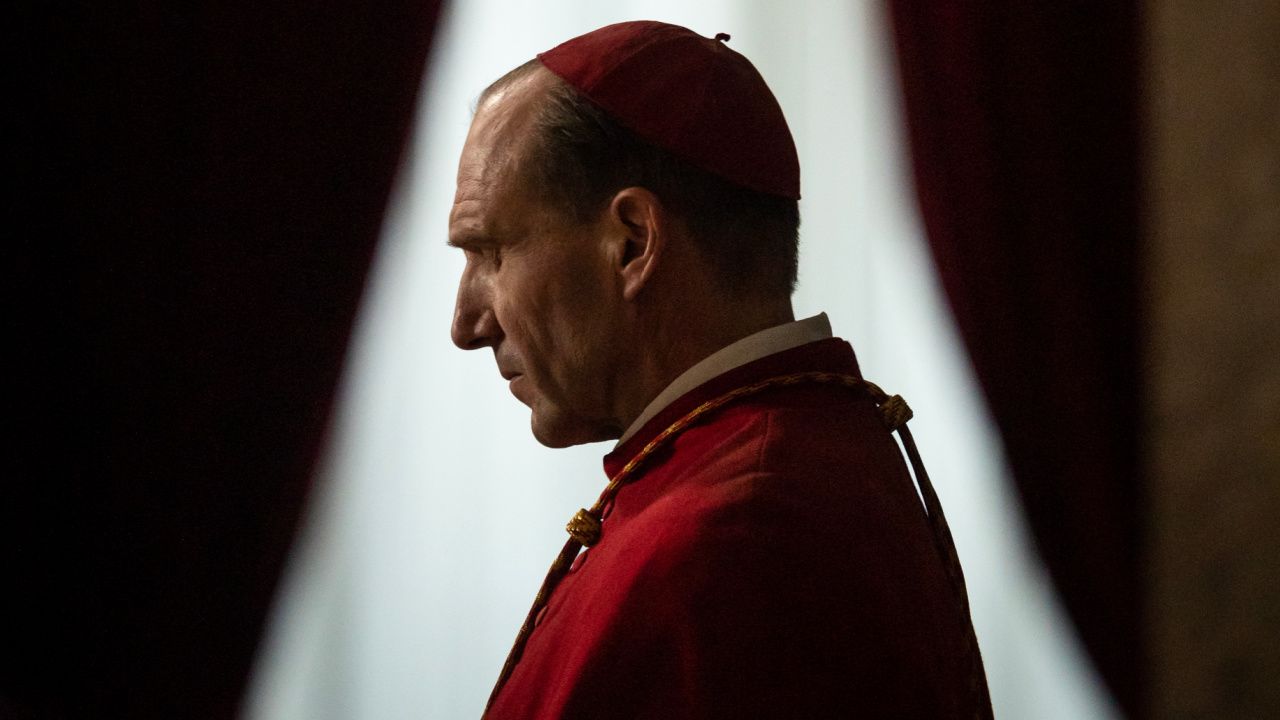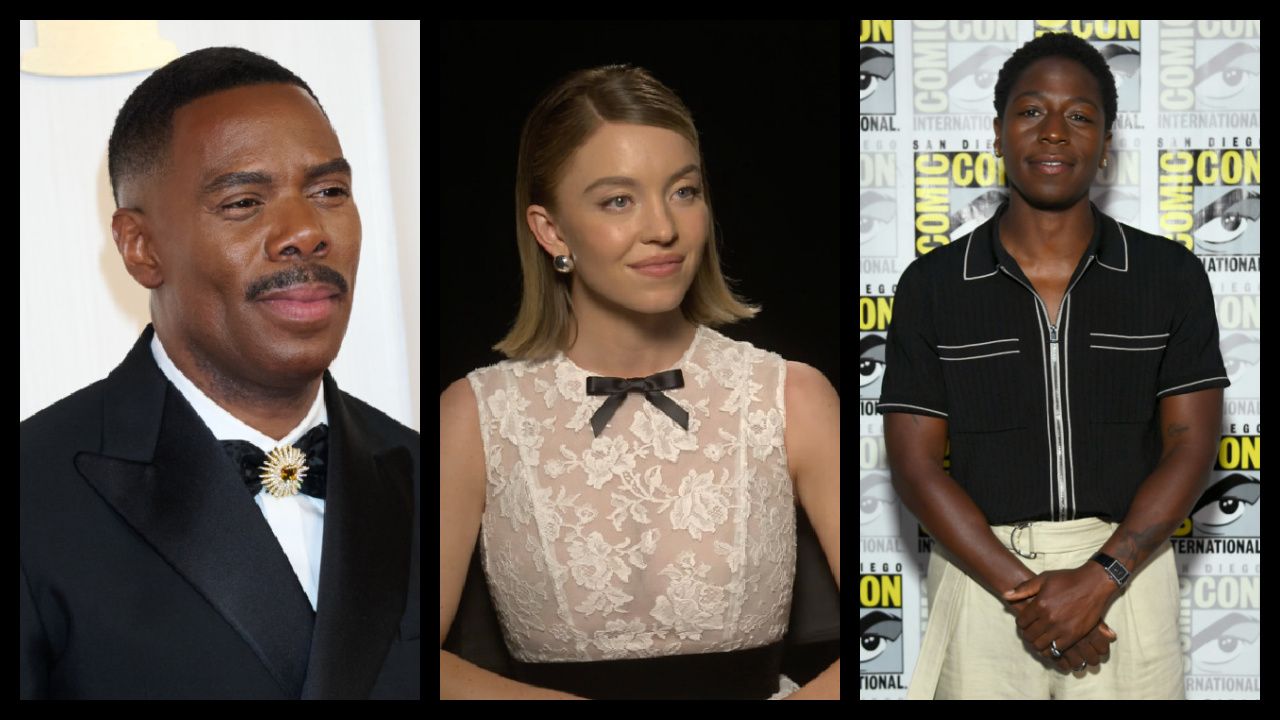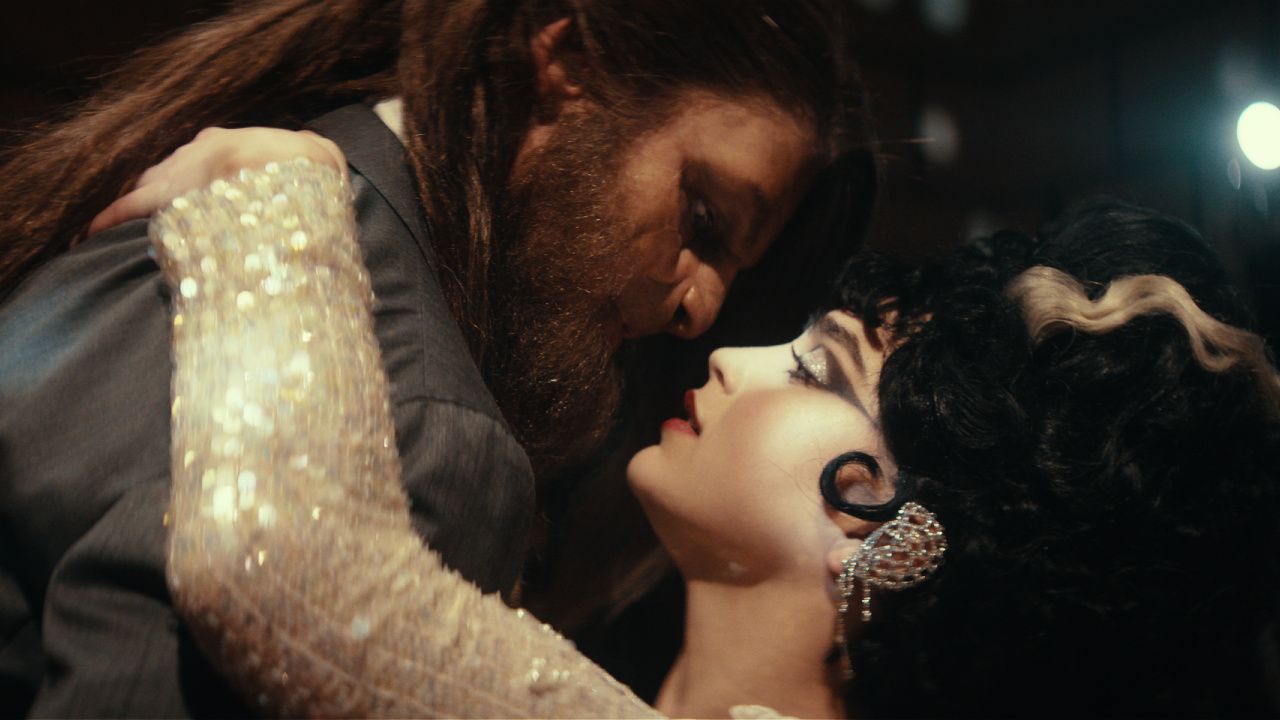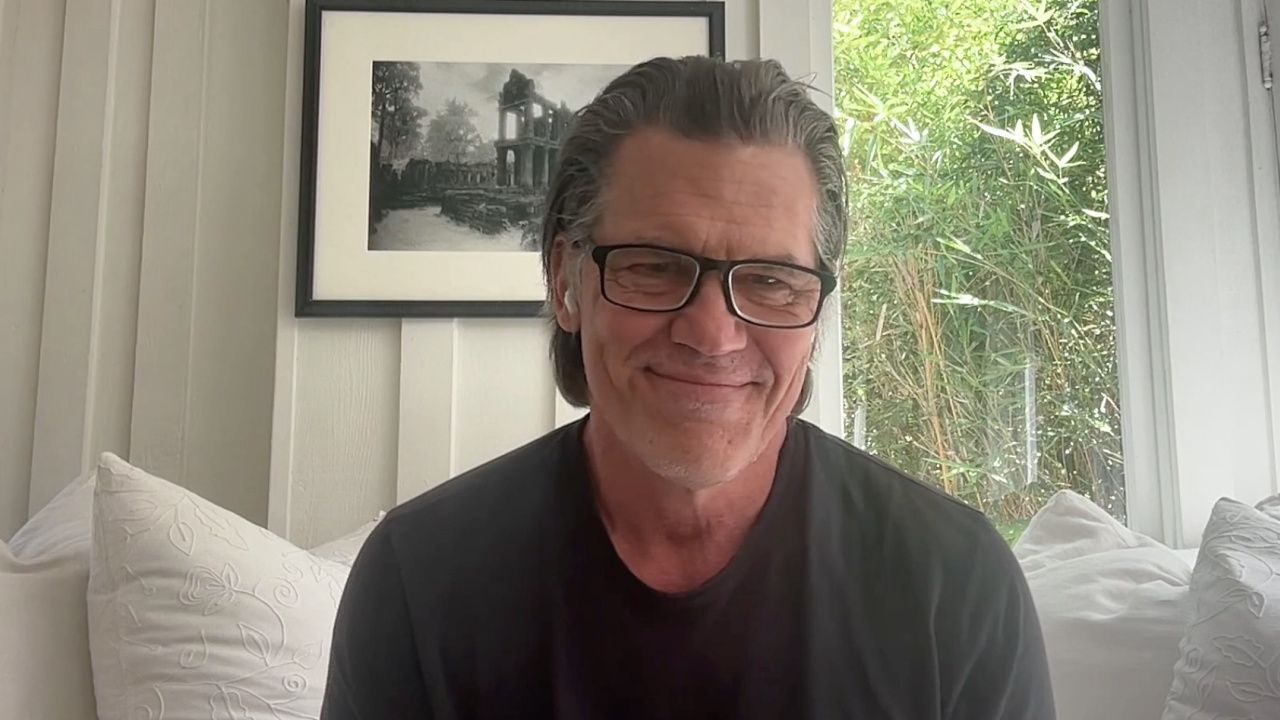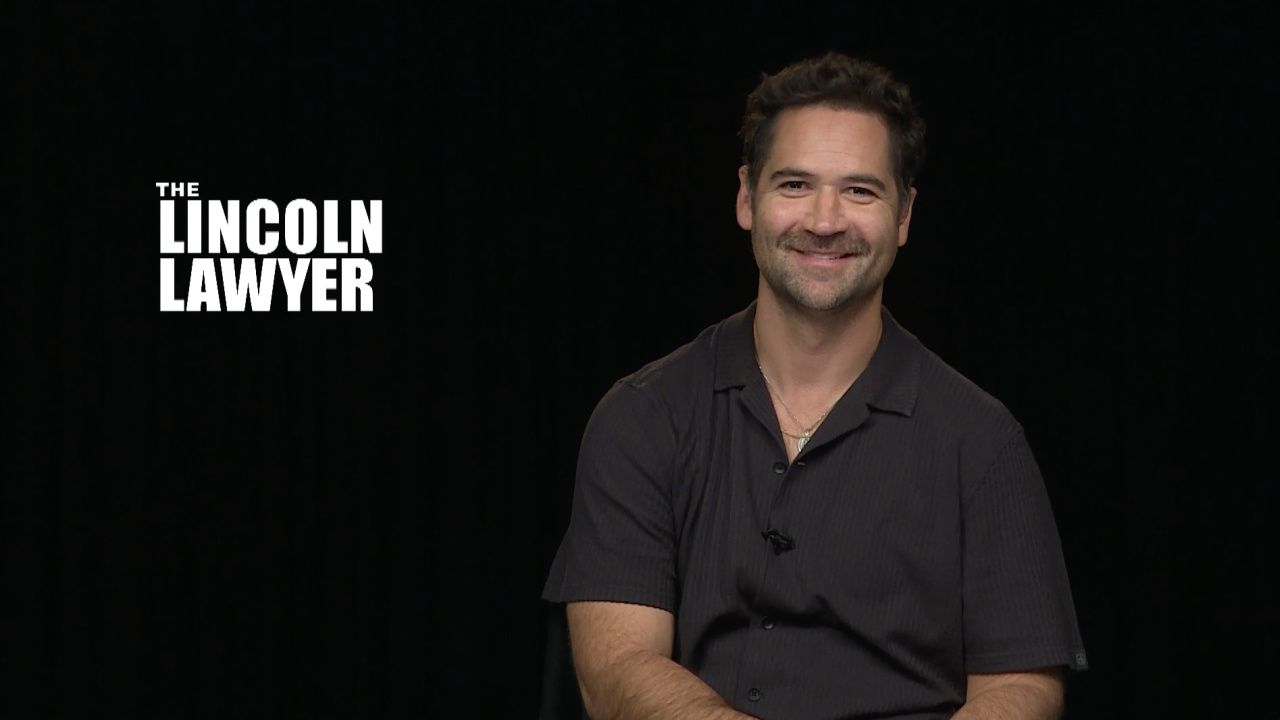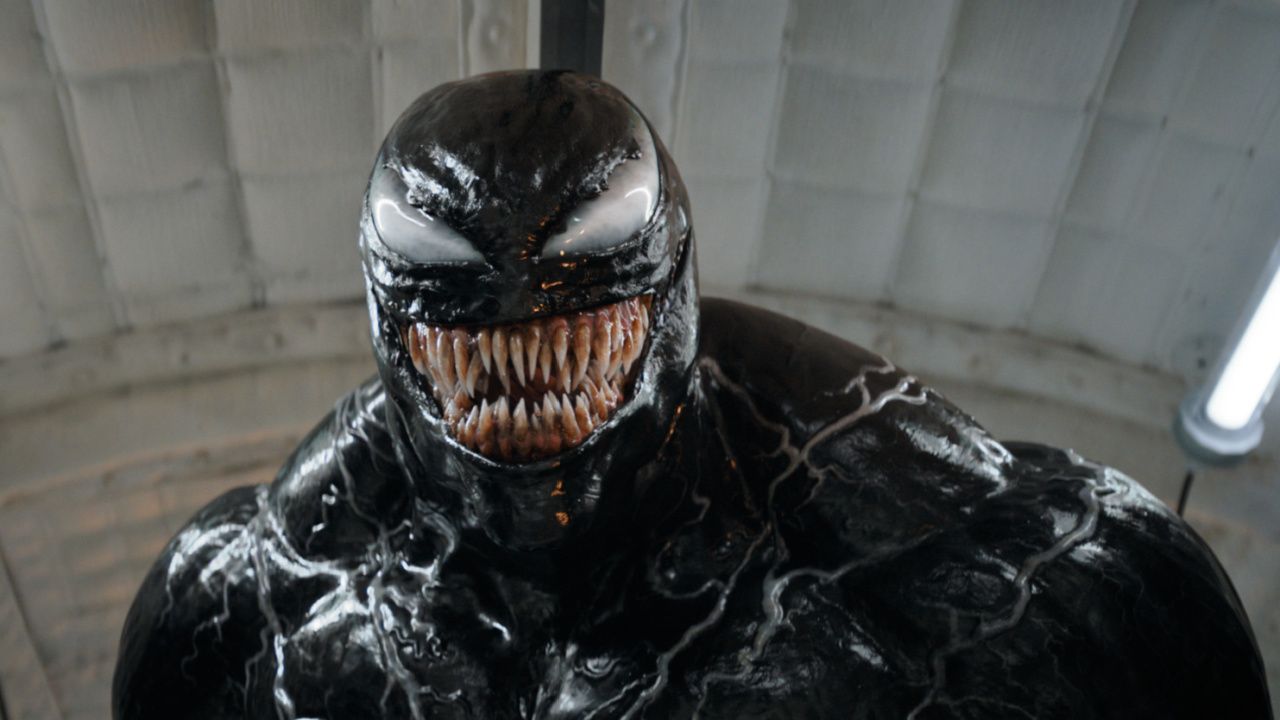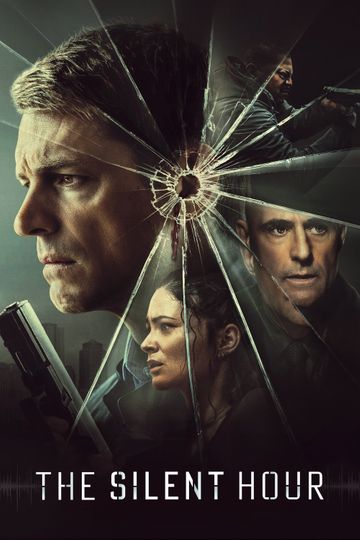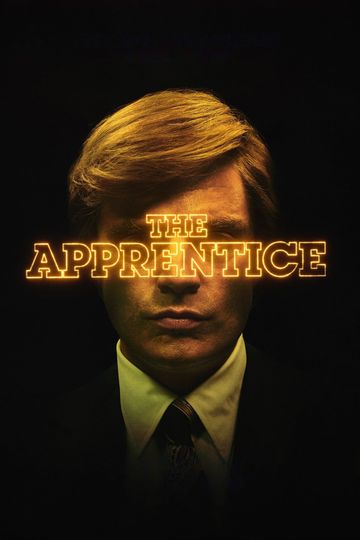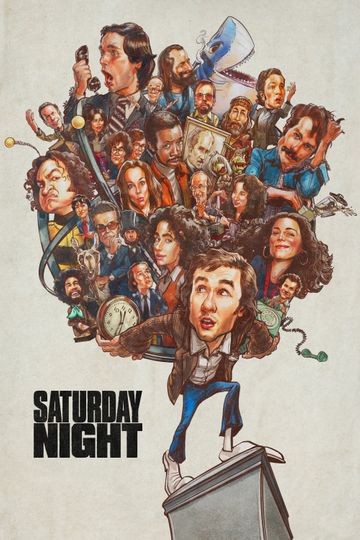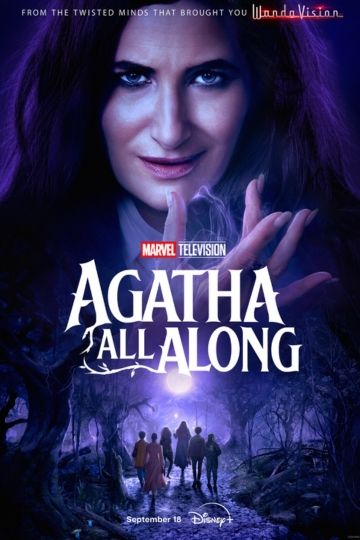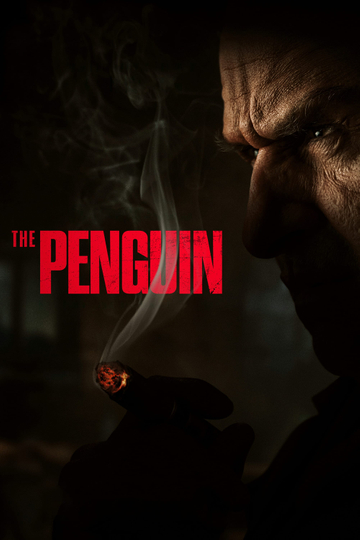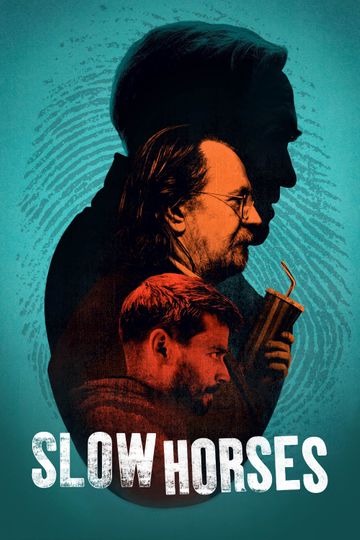Daisy Ridley and Tom Bateman Talk 'Magpie' and Developing the Story
Moviefone speaks with Daisy Ridley and Tom Bateman about 'Magpie'. "I took the original idea to Tom, and he worked at layering all those things," Ridley said.
Opening at Village East in New York, Laemmle Glendale and Lumiere Cinema in Los Angeles and in other select U.S. theaters on October 25th is the new film ‘Magpie’, which was directed by Sam Yates (‘Agatha and the Curse of Ishtar’), written by Tom Bateman (‘Murder on the Orient Express’), and stars Daisy Ridley (‘Young Woman and the Sea’, ‘Star Wars: The Force Awakens’), who also conceived the story.
Related Article: Daisy Ridley and Tilda Cobham-Hervey Talk 'Young Woman and the Sea'
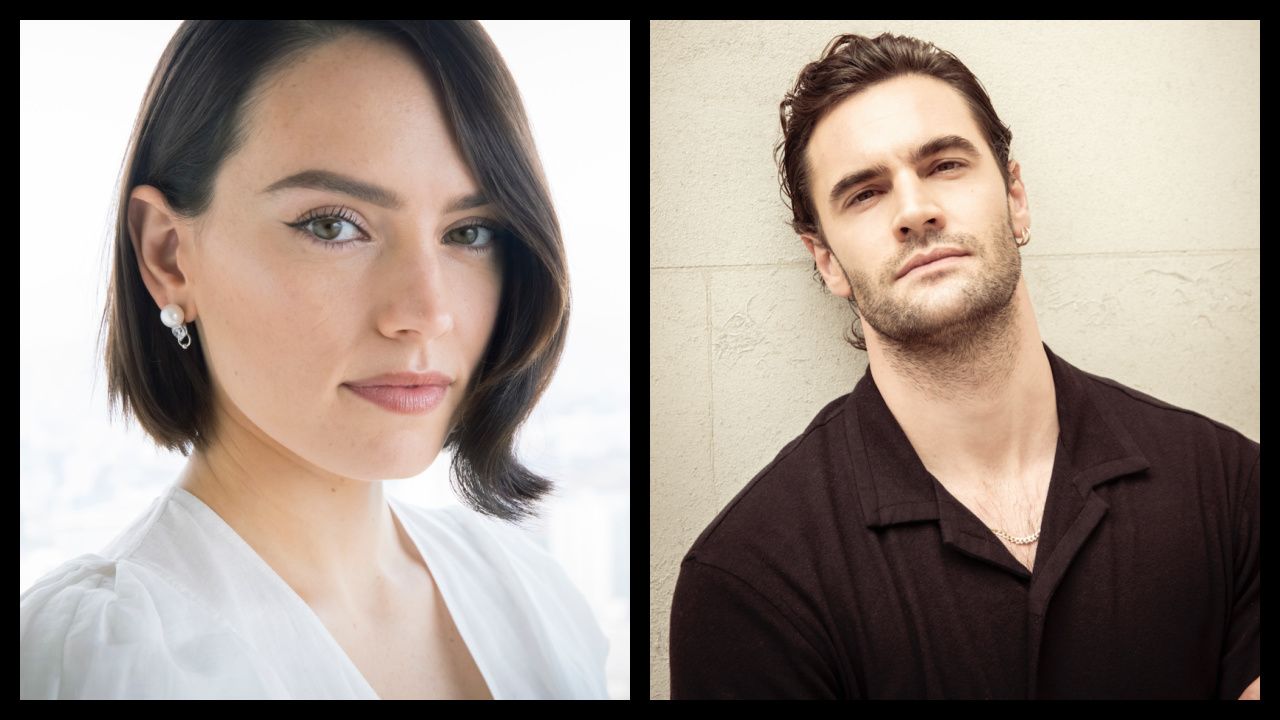
(Left) Daisy Ridley. Photo: Hiroyuki Tsutsumi. (Right) Tom Bateman. Photo: Lee Malone.
Moviefone recently had the pleasure of speaking with Daisy Ridley and Tom Bateman about their work on ‘Magpie’, Ridley’s original idea for the story, Bateman’s work developing the screenplay, Anette and Ben’s marriage, the seductiveness of a movie set, and crafting the film’s surprising twist.
You can read the full interview below or click on the video player above to watch our interviews with Ridley, Bateman and director Sam Yates.

Daisy Ridley stars in 'Magpie'. Photo: Rob Baker Ashton.
Moviefone: To begin with, Daisy, can you talk about coming up with the idea for the film and communicating that to Tom to write the screenplay?
Daisy Ridley: So, the very original idea was actually an actress falling in love with the family that she's working with on set and trying to infiltrate that family, and that was the original idea that I took to Tom. As he started working on it, he just said very quickly that he was feeling much more drawn to Anette, to this woman who is at home and doesn't get to be on set and isn't an actor and doesn't really get to partake in any of the excitement that her daughter's a part of. That was the beginning of this, ‘Magpie’ as it is now, and he worked at layering all those things. Then of course, Anette isn't just at home with the baby and not at work. She's also in the throes of a difficult marriage that she's trying to maintain and trying to hold onto, and she's incredibly isolated and there's a lot that she's grappling with on top of her husband's wandering eye.
MF: Tom, what was your first reaction to Daisy’s idea, and can you talk about developing the screenplay?
Tom Bateman: Daisy had the idea when she was working on a movie in Canada, and she had a young girl playing her daughter in it. I picked her up from the airport, London Heathrow, and when we were driving back, she'd had this idea on the plane, and it had been festering in her mind. She said, "What about this idea of an actress who kind of infiltrates a family?" Because she was super interested in the fact that this little girl was calling her mom on and off camera. She was like, "This is super strange" spending all this time with her. She said, "Do you think that's a good idea?" She'd read my writing and been enthusiastic and supportive of it. She said, "Would you write it?" I said, "Oh my God, I'd love to". So, thinking about playing with the perception of who people are, and the blurred lines of reality and things. Then very quickly, Daisy said, "Yeah, we've got a pitch to a producer in about two days". I went, "Okay". We pitched to them and about three days later they came back and said, "We'd love to make this with you". So, I got to work very quickly. I'd set my alarm for like 4:00 AM every day, I'd get up, and I'd do about four or five hours writing. Daisy would come read it, pace up and down, give me notes, say yes or no, and go in that direction. That's how we put it together.

Shazad Latif in 'Magpie'. Photo: Rob Baker Ashton.
MF: Daisy, can you talk about the cracks in Ben and Anette’s marriage and how those problems are magnified when their daughter books a role in a movie?
DR: We meet the couple when things aren't good. Hiba (Ahmed), who plays Matilda, was six when we were filming, so the marriage, the relationship has lasted at least eight years. We wanted people to understand what might have brought them together in the first place, so we knew in casting Shazad (Latif) that he has all the charm and all the warmth, and you could understand what Anette fell in love with at the beginning. But things are difficult, and they have been difficult, and there are indiscretions that Anette has swallowed and there is time away that Ben has called one thing and means another. So, you are meeting them currently where Ben is essentially, he doesn't pay attention to his wife and she is desperately trying to hold onto something that is probably finished in many ways, but she wants stability for her children and she's also trying to get back into the workplace. I don't think, honestly, at the beginning, Ben is trying to be cruel. It's just a casual offhand comment here and a comment there. Tom and I read this article a few years ago talking about “paper cuts” in a marriage, and basically that it doesn't always have to be these big things that people throw at each other. It's not always a huge argument or a huge fight. It can be those small slights day after day that people fire at each other that over time causes blood loss in the marriage, and that is where we are really meeting this couple. Very quickly, Anette understands that Ben's eye is being turned again, and it's both the implosion and the explosion of the marriage.
MF: Tom, how did you envision Ben and Anette’s relationship, and can you talk about what happens when Ben accompanies their daughter on set?
TB: I mean, narratively speaking, what's traditional, I think, in a film or a story is to show a very happy relationship and see that get sort of tested a little bit and then a big test, and then see the ramifications of that. I just read this book by Ed Zwick called 'Hits, Flops, and Other Illusions: My Fortysomething Years in Hollywood', and he's a brilliant screenwriter. He said this thing that really stuck with me, which was “pick up the story as late as possible”. I thought that would be super fun to not pick up when it's good, but to pick up when they are at the point where enough pain and damage has been done to their relationship, that it's already on thin ice. That there is so much history there that even in one little comment that Ben, played by the brilliant Shazad Latif, that he can just say one thing to Daisy's character, Anette. There are years of history behind that one moment. So that as an audience member, it's just like straight away he can say one thing and you can see on Daisy's face that there's pain there. Hopefully as an audience they lean forward and go, “Wait a minute, what's that?” Very quickly we meet this amazing human being played by Matilda Lutz, Alicia, and you can see exactly why Ben would have his head turned and be seduced by this idea of this actress looking twice at him and what that can put the pressure on. Because really, I wanted to speed up, narratively, and get to the action as soon as possible, so that very quickly, you are watching this relationship get pressurized and attacked from all sides. So that we're watching this slowly, these cracks and these paper cuts appear in the relationship.

(L to R) Matilda Lutz and Shazad Latif in 'Magpie'. Photo: Rob Baker Ashton.
MF: Daisy, Ben is really seduced by the romanticism of being on a movie set. For those who have never been on a movie set, can you explain the seductiveness and the fantasy that a person could get wrapped up in when making a movie?
DR: I love making movies so much that it is really a strange thing to try and describe in an articulate way, but basically, you're acting, and your brain is tricked into thinking that what is happening in your acting self is really happening. You form these intense, incredible bonds very quickly. You are with the cast and the crew of the film 12 to 14 hours a day, often way more than you're at home, way more than the people you're seeing. Because of that intensive community, bonds are formed incredibly quickly and there's such a shorthand between everyone. It's just an incredibly intimate thing, particularly acting that can be very exposing and very vulnerable, and you are on set in front of many people. It is just a lot of very fast intimacies going on, so the feeling is like seduction. I think particularly people that have come to visit me on sets that are like, "Oh my God, it's so amazing being on set." To me, it really is that exciting, and that is what Ben is drawn to. Certainly, for someone that has not been on a set before, he is hanging out with a movie star, his daughter is in this massive film. He is being treated like a king and he is creatively feeling inspired in a way that he hasn't in a long time, so you can understand why he's so drawn to the movie that his daughter is in.
MF: Tom, as an actor yourself, do you agree with Daisy? Do you think movie sets can be a seductive experience?
TB: I mean that was really the primary idea from Daisy, which was her saying, and it wasn't in the romantic way, it was to do with this little girl and her perspective of spending all this (time on set). The fact that she didn't know, children are amazing because they're not commenting on their own experience, they're just experiencing life. So, Daisy said, "Look, this little girl has no filter and she's looking at me like I'm her mom. We're spending all this time together," and just using that as a seed to open that question. As you say, film sets or I suppose any creative environment where human beings are put together for a very intense small period, but for many hours in the day, you're basically waking up and spending all day and then going to sleep with these people. I think too, the seduction comes in with the collective consciousness of those creatives that all the crew and the actors are joining their minds to create this one vision. So, you do become this one entity, this family. It can be very traumatic sometimes, I think, as an actor. Not that you necessarily fall in love with everyone, but it's so intense that when you come home, you almost feel numb. You think, wait, who am I? I spent all my time there. I think people can have that experience not just on film sets, I think it can be anything. If you are truly present and enjoying something with a group of people that you love spending time with, you get very attached to them. We're pack animals as human beings; we look for connection. So, it's an understandable transgression to make to allow your heart to be opened by and taken over by effectively strangers.

(L to R) Daisy Ridley and Hiba Ahmed star in 'Magpie'. Photo: Rob Baker Ashton.
MF: Without giving anything away, the film has a terrific twist ending. Tom, did you have that idea from the beginning or is that something you found in the writing process, and how did you layer that into the story?
TB: I'm glad you liked the twist, and it's something I love in films. I'm a huge fan of those flips of perspective. Christopher Nolan does it so well. I didn't begin the film knowing that I wanted this twist to happen. I really didn't know what was going to happen in this film, it was a wonderful exploration while writing it very quickly. But very quickly, I came upon the idea that this film is about perspective and the blurred lines of what is real and what is not real. What do we perceive and wish to be real? I wanted to challenge an audience's perspective on their understanding of a character. So, Daisy's character, Shehzad's character, Matilda's character, you judge them and overlook them and underestimate them as characters. But I wanted to take that further. Halfway through creating this, I thought, I want an audience to question their own understanding of this narrative structure itself. I wanted to push that meta side of this. So, I came up with this thought that the movie you think you're watching is not the movie you're watching. When I fed that to Daisy and Kate Solomon, our producer, they really liked that. I said, "Look, I want Daisy's character to be what she's doing the whole time, which is hidden from an audience". Now, that did become very complex when I was writing it because I effectively had this huge table of what was happening in the story and then what Anette was doing, what Ben was doing, and what everyone was doing. Then I had to just slowly work out which pieces I could take away so that an audience could follow what was happening but be kept in the dark about the character's true motivations and intentions, what they're really doing. That process wasn't just the writing process. I worked it out structurally and with the dialogue, but then we had to take it to the actors and the actors themselves had to go, "Wait, what am I playing here? Am I playing this version or this version." It was Sam (Yates), our brilliant director, navigating that. Even up into the edit itself, we were in the editing suite saying, "We might need to lose that moment. That look where Matilda looks up, we might have to lose that." Is that too telling? Is that leading an audience down the wrong path? Is that showing them something that isn't there?” So it was a kind of balancing act, and it's one that I am very proud of that I think collectively, not just myself, but my contribution to it with the script, Daisy, Matilda, Shaz, and Sam, everyone's contribution, and our amazing editor, Chris (Watson), I think we've captured something that an audience knows there is something not quite right going on here, but they don't really know what it is. So that when it starts to happen, I feel an audience going, "Oh, wait a second. I think I know what's going on". For me, that's my favorite cinema going experiences and it's one that I really wanted to emulate here and capture. My proudest moments are when I feel that we've done that.
MF: Finally, Daisy, can you talk about navigating the twist as an actress and layering that into your performance?
DR: Well, the second half of the film was, I describe it as delicious. Certainly, the first half of the film, playing Anette, she's withholding so much and there's a lot of anger and a lot of upset and angst, so holding onto that was emotionally quite draining. Then at what she thinks is her lowest point, when she finds out that an intimate family thing has included someone that isn't her, she then goes to the park to have a day with her kids and is essentially publicly shamed in a way that is all too confronting and makes her realize that all of the things she thought were maybe hidden behind the walls of the family home weren't hidden. So, from then on, the deliciousness with which Anette is understanding what's going on in a way that Ben does not realize she's understanding it, that was so fun, and so much of that is Tom's script. It was so layered, and it was so clear what everyone was doing at any one time, that really, as that tension builds and then things happen the way they do, it was enjoyable, particularly that dinner table scene. That was a fun scene to film.
What is the plot of ‘Magpie’?
A father (Shazad Latif) chaperones his daughter (Hiba Ahmed), who is co-starring in a film with a popular actress (Matilda Lutz), while his wife (Daisy Ridley) is at home with their newborn baby. He soon finds himself falling in love with the actress.
Who is in the cast of ‘Magpie’?
- Daisy Ridley as Anette
- Shazad Latif as Ben
- Matilda Lutz as Alicia
- Hiba Ahmed as Matilda
- Cherrelle Skeete as Emily
- Pippa Bennett-Warner as Esther
- Alistair Petrie as Richard

Daisy Ridley stars in 'Magpie'. Photo: Rob Baker Ashton.
Other Daisy Ridley Movies and TV Shows:
- 'Mr Selfridge' (2013 - 2016)
- 'Star Wars: The Force Awakens' (2015)
- 'Star Wars: The Last Jedi' (2017)
- 'Murder on the Orient Express' (2017)
- 'Star Wars: Forces of Destiny' (2017 - 2018)
- 'Ophelia' (2019)
- 'Peter Rabbit' (2018)
- 'Star Wars: The Rise of Skywalker' (2019)
- 'Chaos Walking' (2021)
- 'The Bubble' (2022)
- 'The Marsh King's Daughter' (2023)
- 'Young Woman and the Sea' (2024)
Buy Daisy Ridley Movies On Amazon












